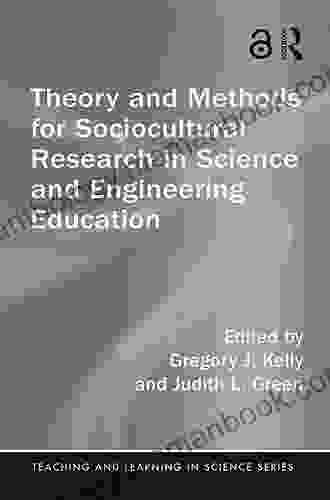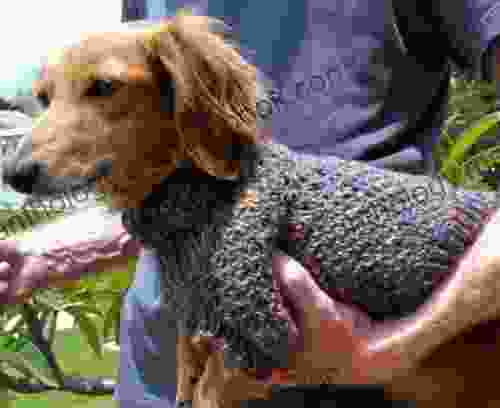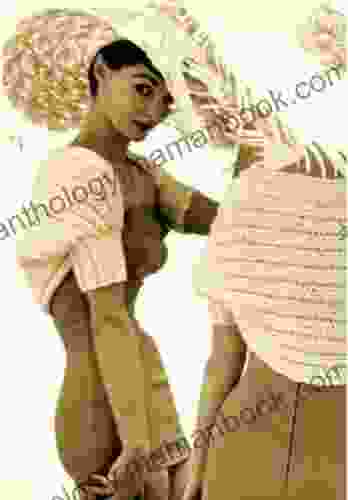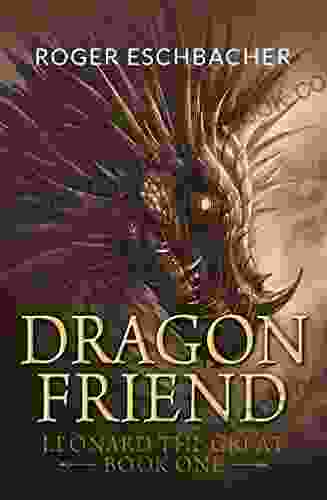Theory and Methods for Sociocultural Research in Science and Engineering: A Comprehensive Guide

Sociocultural research in science and engineering explores the social and cultural factors that shape the production, dissemination, and use of scientific and technological knowledge. It examines how social and cultural norms, values, and practices influence the development of scientific and engineering disciplines, the ways in which research is conducted and communicated, and the impact of scientific and technological advancements on society.
This comprehensive article provides a detailed overview of theory and methods for sociocultural research in science and engineering. It begins by discussing key theoretical frameworks and concepts, followed by an exploration of various research methods. The article also includes examples of sociocultural research in science and engineering and concludes with a discussion of the field's future directions.
5 out of 5
| Language | : | Chinese |
| File size | : | 3049 KB |
| Screen Reader | : | Supported |
| Enhanced typesetting | : | Enabled |
| Print length | : | 392 pages |
Theoretical Frameworks and Concepts
Social Constructivism
Social constructivism is a theoretical framework that emphasizes the social and cultural construction of knowledge. It argues that knowledge is not an objective reality discovered by scientists but rather a collection of socially constructed beliefs and practices. Social constructivism has been influential in sociocultural research in science and engineering, providing a lens for understanding how scientific and technological knowledge is produced and shaped by social and cultural factors.
Actor-Network Theory
Actor-network theory (ANT) is a theoretical framework that focuses on the relationships between humans and nonhumans in the production of knowledge. ANT argues that knowledge is not produced by individual scientists working in isolation but rather through networks of actors, including scientists, engineers, technicians, instruments, and other material objects. ANT has been used in sociocultural research in science and engineering to trace the development of scientific and technological artifacts and to understand how they shape social and cultural practices.
Science and Technology Studies (STS)
Science and technology studies (STS) is an interdisciplinary field that examines the social and cultural aspects of science and technology. STS scholars draw on a variety of theoretical frameworks, including social constructivism and ANT, to study the production, dissemination, and use of scientific and technological knowledge. STS research has been influential in shaping sociocultural research in science and engineering, providing a broad framework for understanding the social and cultural dimensions of science and technology.
Research Methods
Ethnography
Ethnography is a qualitative research method that involves observing and participating in the everyday lives of people. Ethnographers typically spend extended periods of time in the field, observing and interacting with people in their natural settings. Ethnography has been used in sociocultural research in science and engineering to study the work practices of scientists and engineers, the social interactions within research laboratories, and the ways in which scientific and technological knowledge is used in practice.
Interviews
Interviews are a qualitative research method that involves asking people questions about their experiences, beliefs, and attitudes. Interviews can be conducted in person, over the phone, or online. They can be structured, semi-structured, or unstructured, depending on the research question and the desired level of detail. Interviews have been used in sociocultural research in science and engineering to collect data on the work experiences of scientists and engineers, the public's understanding of science and technology, and the impact of scientific and technological advancements on society.
Discourse Analysis
Discourse analysis is a qualitative research method that examines the ways in which language is used to construct meaning. Discourse analysts study texts, speeches, and other forms of communication to understand how they shape and are shaped by social and cultural norms and values. Discourse analysis has been used in sociocultural research in science and engineering to analyze scientific and technical texts, media representations of science and technology, and public discourse about science and technology.
Science and Technology Indicators (STIs)
Science and technology indicators (STIs) are quantitative data that measure the inputs, outputs, and impacts of science and technology. STIs include data on research and development (R&D) spending, the number of scientific publications, the number of patents granted, and the number of Nobel Prizes awarded. STIs have been used in sociocultural research in science and engineering to track the growth of science and technology, to compare the performance of different countries and regions, and to assess the impact of science and technology on economic development and social progress.
Examples of Sociocultural Research in Science and Engineering
The Social Construction of Scientific Knowledge
Studies in the sociology of scientific knowledge have shown that scientific knowledge is not an objective reality but rather a social construction. Scientists do not simply discover the laws of nature; they construct them through a process of social interaction and negotiation. One example of this is the discovery of the Higgs boson, which was the result of a massive collaboration between thousands of scientists from around the world. The Higgs boson was not simply "found" in nature; it was constructed through a complex social and technical process.
The Impact of Social and Cultural Factors on Technological Development
Research in science and technology studies has shown that social and cultural factors play a significant role in technological development. For example, the development of the Internet was shaped by a number of social and cultural factors, including the rise of computer science, the growth of the counterculture movement, and the Cold War. The Internet was not simply a technological invention; it was also a social and cultural phenomenon.
The Public Understanding of Science and Technology
Research in the public understanding of science and technology has examined how the public thinks about and understands science and technology. This research has shown that the public's understanding of science and technology is often shaped by social and cultural factors, such as their personal experiences, their education level, and their political beliefs. For example, a study by the Pew Research Center found that Americans' views on climate change are strongly correlated with their political affiliations.
Future Directions for Sociocultural Research in Science and Engineering
Sociocultural research in science and engineering is a rapidly growing field. As the world becomes increasingly interconnected and technology plays an ever-greater role in our lives, it becomes increasingly important to understand the social and cultural dimensions of science and technology. Future directions for sociocultural research in science and engineering include:
- The impact of social media on science and technology. Social media has become a powerful tool for sharing information and connecting people. This has the potential to both positive and negative impacts on science and technology. For example, social media can be used to spread misinformation about science and technology, but it can also be used to promote public engagement with science and technology.
- The role of science and technology in global development. Science and technology have the potential to contribute to global development by improving health, education, and economic well-being. However, it is important to consider the social and cultural implications of science and technology in developing countries. For example, it is important to ensure that new technologies are appropriate for local contexts and that they do not exacerbate existing inequalities.
- The ethics of science and technology. As science and technology continue to develop, it is important to consider the ethical implications of these developments. For example, it is important to consider the ethical implications of gene editing, artificial intelligence, and other new technologies.
Sociocultural research in science and engineering is a dynamic and growing field that explores the social and cultural dimensions of science and technology. This research has the potential to contribute to our understanding of how science and technology are produced, disseminated, and used. It can also help us to understand the impact of science and technology on society and to develop policies that promote the responsible development and use of science and technology.
5 out of 5
| Language | : | Chinese |
| File size | : | 3049 KB |
| Screen Reader | : | Supported |
| Enhanced typesetting | : | Enabled |
| Print length | : | 392 pages |
Do you want to contribute by writing guest posts on this blog?
Please contact us and send us a resume of previous articles that you have written.
 Top Book
Top Book Novel
Novel Fiction
Fiction Nonfiction
Nonfiction Literature
Literature Paperback
Paperback Hardcover
Hardcover E-book
E-book Audiobook
Audiobook Bestseller
Bestseller Classic
Classic Mystery
Mystery Thriller
Thriller Romance
Romance Fantasy
Fantasy Science Fiction
Science Fiction Biography
Biography Memoir
Memoir Autobiography
Autobiography Poetry
Poetry Drama
Drama Historical Fiction
Historical Fiction Self-help
Self-help Young Adult
Young Adult Childrens Books
Childrens Books Graphic Novel
Graphic Novel Anthology
Anthology Series
Series Encyclopedia
Encyclopedia Reference
Reference Guidebook
Guidebook Textbook
Textbook Workbook
Workbook Journal
Journal Diary
Diary Manuscript
Manuscript Folio
Folio Pulp Fiction
Pulp Fiction Short Stories
Short Stories Fairy Tales
Fairy Tales Fables
Fables Mythology
Mythology Philosophy
Philosophy Religion
Religion Spirituality
Spirituality Essays
Essays Critique
Critique Commentary
Commentary Glossary
Glossary Bibliography
Bibliography Index
Index Table of Contents
Table of Contents Preface
Preface Introduction
Introduction Foreword
Foreword Afterword
Afterword Appendices
Appendices Annotations
Annotations Footnotes
Footnotes Epilogue
Epilogue Prologue
Prologue Maureen Lee
Maureen Lee Conrad Tarte
Conrad Tarte Dr David E Roots Chapman
Dr David E Roots Chapman James Kale Mcneley
James Kale Mcneley Michael Shiloh
Michael Shiloh William Dalrymple
William Dalrymple Will Eno
Will Eno C Z Dunn
C Z Dunn Jess Kidd
Jess Kidd W Michael Gear
W Michael Gear L T Ryan
L T Ryan Benjamin Law
Benjamin Law Joseph Fleming
Joseph Fleming Elle Marr
Elle Marr Mariah Wolfe
Mariah Wolfe Maia Kobabe
Maia Kobabe David Lee Corley
David Lee Corley Jinmin Wang
Jinmin Wang Phong Nguyen
Phong Nguyen Scott Pratt
Scott Pratt
Light bulbAdvertise smarter! Our strategic ad space ensures maximum exposure. Reserve your spot today!
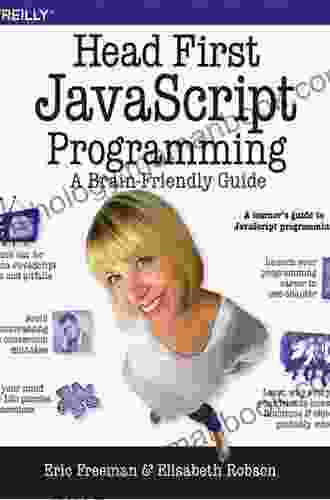
 Efrain PowellHead First JavaScript Programming, 2nd Edition: A Brain-Friendly Guide to the...
Efrain PowellHead First JavaScript Programming, 2nd Edition: A Brain-Friendly Guide to the...
 Anthony BurgessEine Kleine Nachtmusik: An In-depth Exploration of Mozart's Allegro KV 525...
Anthony BurgessEine Kleine Nachtmusik: An In-depth Exploration of Mozart's Allegro KV 525... Jayden CoxFollow ·15.1k
Jayden CoxFollow ·15.1k Casey BellFollow ·2.1k
Casey BellFollow ·2.1k Joseph ConradFollow ·12.8k
Joseph ConradFollow ·12.8k Ronald SimmonsFollow ·14.8k
Ronald SimmonsFollow ·14.8k Harry CookFollow ·15.2k
Harry CookFollow ·15.2k Fyodor DostoevskyFollow ·3.4k
Fyodor DostoevskyFollow ·3.4k Floyd RichardsonFollow ·16.6k
Floyd RichardsonFollow ·16.6k Dominic SimmonsFollow ·12k
Dominic SimmonsFollow ·12k
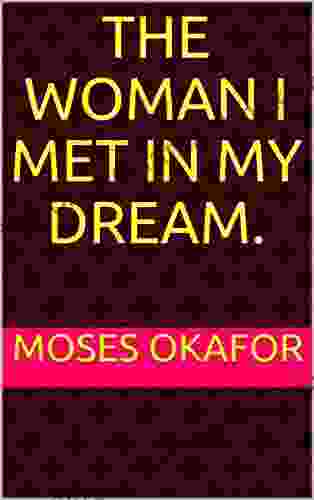
 Vernon Blair
Vernon BlairThe Woman I Met in My Dream: An Unforgettable Night of...
As the veil of night...

 Carlos Fuentes
Carlos FuentesThe Ultimate Guide to Healthy Eating for Toddlers: Meal...
As a parent of a...
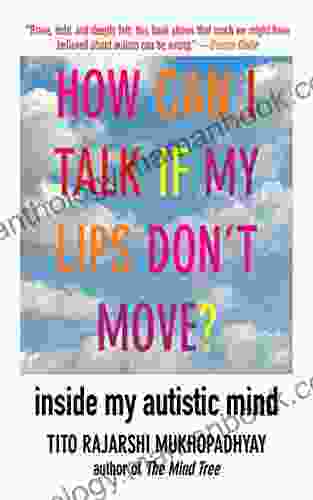
 Peter Carter
Peter CarterInside My Autistic Mind: A Journey of Self-Discovery and...
Autism spectrum disorder (ASD) is a...

 Isaac Asimov
Isaac AsimovA Journey Through Jane Austen's Literary Masterpieces:...
Jane Austen, the renowned English...
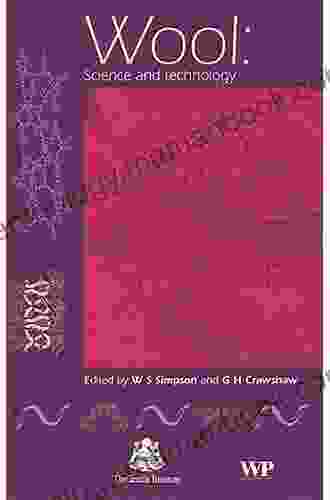
 Hank Mitchell
Hank MitchellAdvancements in Textiles: Science and Technology by...
The textile...

 Troy Simmons
Troy SimmonsRecovery Road: An Odyssey of Hope and Redemption by...
Recovery Road is a...
5 out of 5
| Language | : | Chinese |
| File size | : | 3049 KB |
| Screen Reader | : | Supported |
| Enhanced typesetting | : | Enabled |
| Print length | : | 392 pages |


